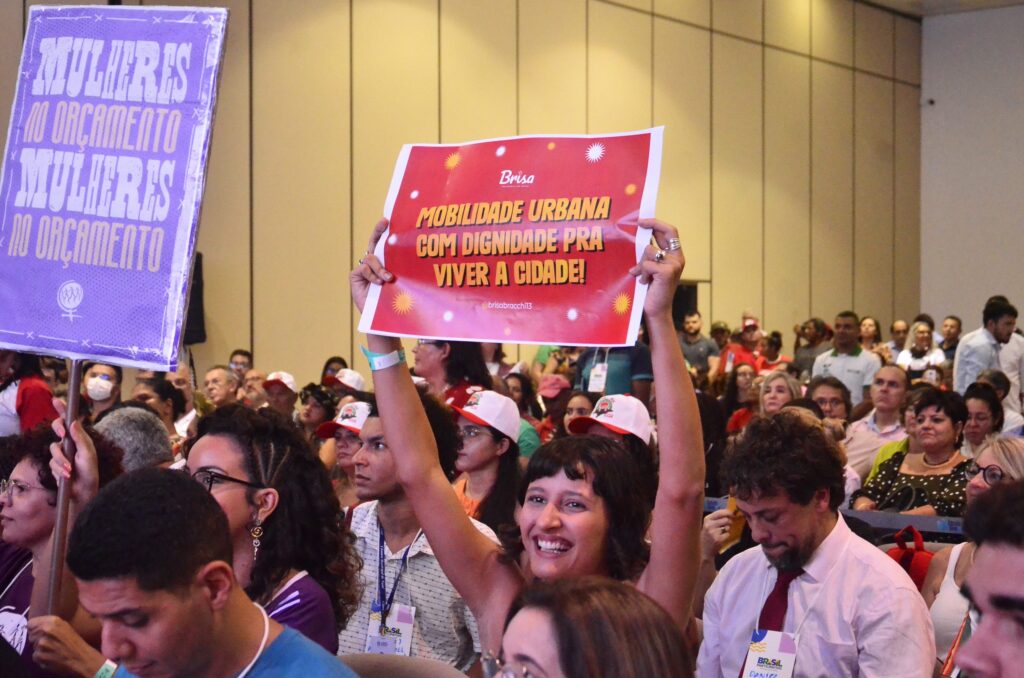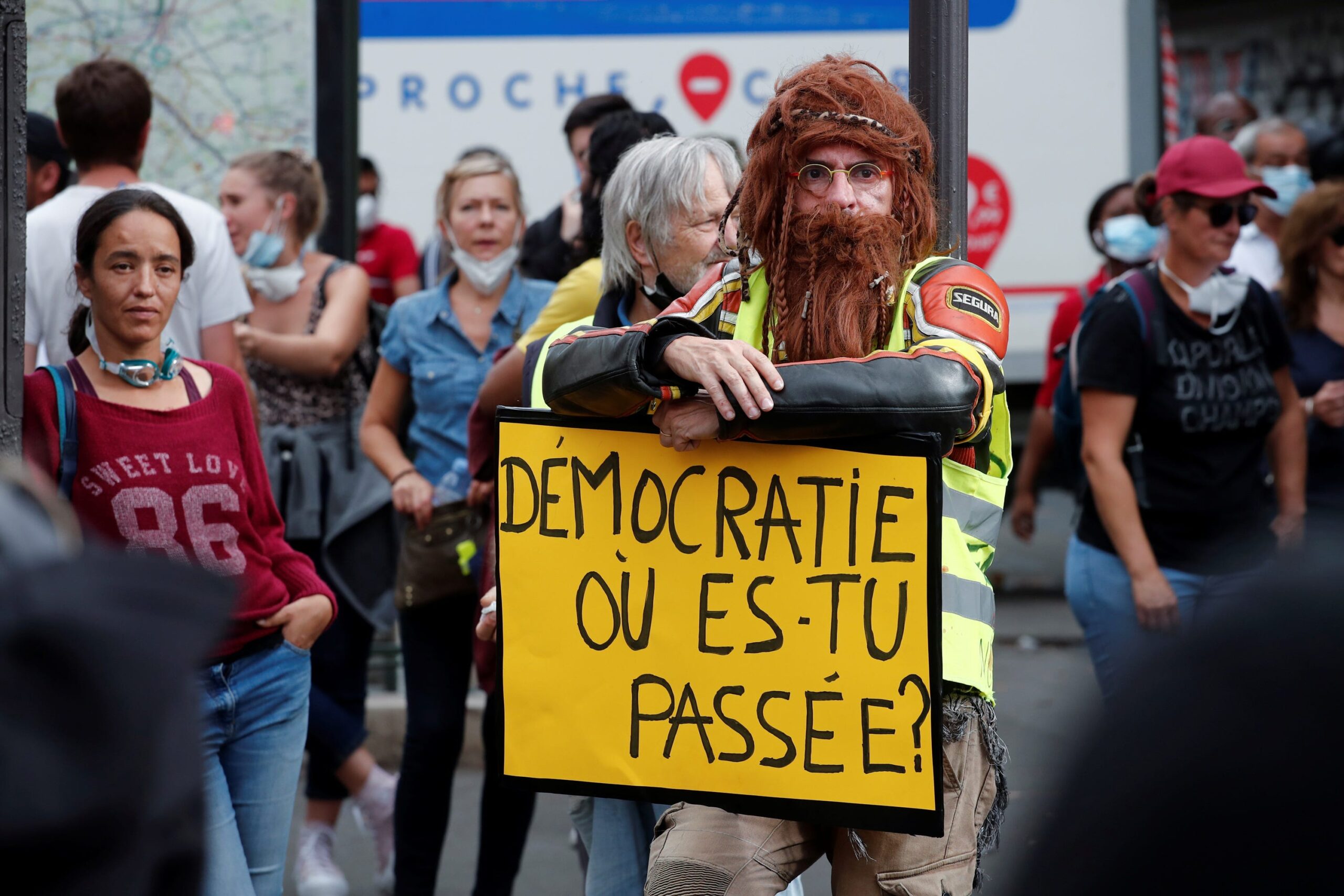Marcos Nobre is perhaps Brazil’s foremost political philosopher and critical theorist. In his tour de force essay, Nobre explains the myriad contradictions and challenges of transcending the neoliberal condition. His political analysis and proposed prescriptions are revelatory.
We are also thrilled to showcase another outstanding Brazilian public intellectual, Miguel Lago. Lago is eager to identify political and social solutions that move beyond technocracy’s inherent limitations during today’s “states of emergency.” The two pieces present a fusillade of ideas about what’s wrong, what prevents change, and possible steps towards remediation.
Lago’s piece takes the COVID-19 moment as a starting point for analysis. We follow him with a hard-hitting essay from Medical Anthropology Quarterly that looks at the hegemony of metrics in the context of the COVID-19 catastrophe.
We then spotlight our great friends at the Wisdom of Crowds and their nonpareil podcast, this time tackling how to disagree respectfully, thoughtfully, generatively, yet without compromise. The discussion is a tonic for these toxic times.
Anthropologist David Scott follows in a re-reading of a seminal text for him, C.L.R. James’s The Black Jacobins, this time through the lens of the intellectual historian Reinhart Koselleck. What results is what The Ideas Letter valorizes: how one can productively and powerfully amend their thinking.
Last, and following on a previous discussion in The Ideas Letter about international justice, we present a comparative essay about two vital historical moments in Kenya, one past and one present, that explains the nexus of (post)coloniality, power, and justice.
Our musical selection this issue is the Pakistani combo Mughal-e-Funk, a wonderful amalgam of styles and sounds undergirded by an unstoppable bass line. Enjoy the creative video too!
—Leonard Benardo, senior vice president at the Open Society Foundations
A New Dependency Theory Moment

Marcos Nobre
The Ideas Letter
Essay
Global elite calls for a new Bretton Woods consensus represent an effort to overcome neoliberalism’s crisis through a transition within the system. In fact, the battle between global progressive elites and the far right is essentially a fight over how to reform neoliberalism—a dispute over “what to preserve and what to discard from the neoliberal period.” But the new Bretton Woods moment threatens to leave Global South countries trapped in neoliberalism—with untenable costs for democracy. Nobre interrogates the possibility of rethinking old Latin American dependency theory as a fundamental part of the post-neo-liberal debate. But, he warns, complicating the categories of center and periphery is key; as is paying attention to the interplay, often at odds, between domestic authoritarian trends, and progressive geopolitical aspirations. A tense political economy that is (re)emerging in north-south interactions.
“If capitalism is to be reorganized according to a post-neoliberal model, there is no doubt that it will require a new economic paradigm. However, in order for it to allow demands for justice to have their fair share in the process, in order for it to allow countries to choose democracy, it will have to include much more than a new economic paradigm. From the point view of the Global South, the openness to such claims will also depend on the development of its critical counterpart, that is to say, a renovated Dependency Theory that may account for current domination patterns and possible means to fight them; a theory in which decolonization efforts include not only South-North dependency, but also dependence within the Global South itself.”
Post-Technocratic Pathways for Responding to Emergencies

Miguel Lago
The Ideas Letter
Essay
The COVID-19 pandemic forced the world’s governments to simultaneously respond to the singular challenge of a respiratory virus—a de facto global experiment that revealed the limitations of public action, particularly within liberal democracies, which had to balance the need for swift reaction to an emergency and the extensive public debate before political action that is required by democratic principles. As emergencies become the norm, identifying a genuinely democratic approach to pandemic response is imperative, not only because of moral concerns, but also in order to create trust in the government required for compliance, argues Lago.
“While we have yet to see experiences where sortition mechanisms fully replace Parliament, the development of deliberative mini-publics to underpin parliamentary debates and, more importantly, public debates, is emerging as a significant democratic innovation. Ireland stands out in this regard, having conducted four successive citizens’ assemblies chosen through random selection. This approach has led to significant political outcomes, resulting in three successful referendums stemming from these assemblies—a feat unparalleled by other nations. Notably, the 2018 referendum that legalized abortion in Ireland was preceded by a citizens’ assembly that spent six months discussing the issue. The widespread dissemination of this discussion influenced the national public debate, and the referendum result coincidentally or not mirrored the decision made by the Citizens’ Assembly.”
A Pandemic of Metrics
Vincanne Adams, Clare Chandler, Ann H. Kelly, and Julie Livingston
Medical Anthropology Quarterly
Article
The COVID-19 pandemic highlighted the significant role metrics play in shaping society’s understanding and response to crises. The existential implications of metrics in managing pandemic situations warrant further examination. The pandemic’s emergence as a global health and political event was facilitated by anticipatory metric practices that transformed SARS-CoV-2 into a matter of worldwide concern. COVID-19 metrics affect people’s emotions; the numbers can influence public behavior in powerful ways. But the narratives we tell with metrics can be misleading: “Even as the pandemic continues, we are living in a world shaped by these metrics.”
“Descriptive metrics used to count case loads and death rates of COVID-19, along with the predictive metrics that warned of mass mortalities, distilled the story of the pandemic into one about a deadly virus on the move. This viral narrative, however, effaced other stories that offered a more complex accounting of COVID-19’s pathology. SARS-CoV-2 was not an indiscriminate agent. As many anthropologists have noted … some communities were more at risk of both contracting and dying from it than others. Moreover, the metrics that focused on viral movements had a hard time tracking those aspects of SARS-CoV-2 that did not behave like a typical virus, including those whose experience of COVID-19 persisted. What stories might have been told had the metrics focused on, or included, these confounding factors?”
How to Disagree Without Compromise
Damir Marusic and Shadi Hamid interview Jen Brick Murtazashvili
Wisdom of Crowds
Podcast
“We frequently talk about ‘deep difference.’ We believe it’s naive to think that through reasoned discourse we can reach compromise positions. That does violence to the power of ideas and the strength of belief. We think it’s both healthier and more realistic to acknowledge that certain differences can’t be reconciled, and to instead direct the conversation toward respectful mutual interrogation—where the discussants push each other to excavate why they believe what they believe.”
In the face of irreconcilable differences in opinions on Gaza and Israel, Jen Brick Murtazashvili argues for dialogue aimed at compassion rather than understanding, using the example of gatherings organized at the University of Pittsburgh shortly after the October 7 attacks in Israel, when “campuses were already a rife in protest and I think that there was a sense that people were being dehumanized and there was a real fear that this dehumanization is what leads to violence. … I think people fear that the other side hates them so much that they can’t be seen as human. And what happens at these events is people just start crying.”
The Futures Past of the Postcolonial Present
David Scott
Journal of the History of Ideas
Essay
Renowned Jamaican-born anthropologist David Scott reflects on his unexpected journey to incorporating aspects of Reinhart Koselleck’s theory of history into his influential studies of anticolonial revolutions in the Caribbean and their enduring aftermaths. Scott reads C.L.R James’ The Black Jacobins through Koselleck’s lens, delving into changing horizons of expectation.
“For Koselleck, history and time are not synonymous: histories are composed of times, of course, but time is not reducible to history. By introducing a critical sensibility for the varied modes of the possible organizations of time, Koselleck enabled us to more carefully theorize how a given conjuncture of the present, with its specific historical experiences and conceptual-ideological problematizations of experience, gives rise to a distinctive horizon of conceptual-ideological expectation of what is to come, what is hoped for, and constructs the pasts of the present so as to generate and animate the temporal rhythms and vectors that carry the narrative in complicated ways toward these futurities.”
Legacies of Colonial Violence in Contemporary Transitional Justice
Memories of Mau Mau, the ‘Kapenguria Six’ and the ‘Ocampo Six’ in Kenya
Anushka Sehmi
International Journal of Transitional Justice
Article
Colonial and racial injustice have an enduring impact on responses to modern conflict by transitional justice mechanisms, a challenge in achieving genuine accountability, redress, and reparations for victims. The piece focuses on examples from Kenya, including the popular memory of the Mau Mau insurgency from 1952 to 1960, the trial of the six Kenyan nationalists known as the “Kapenguria Six” by the British colonial administration, and the trials of six Kenyans alleged to be most responsible for orchestrating the 2007–2008 post-election violence in Kenya, known as the “Ocampo Six,” before the International Criminal Court (ICC).
“Transitional justice mechanisms such as the ICC do not operate in an ahistorical vacuum and international criminal trials as a form of transitional justice may be contested where there is no genuine accountability, redress, or reparations for victims of colonial crimes. However, the juxtaposition of colonial crimes and the ICC prosecutions in Kenya also raises important questions relating to accountability for historical crimes in former colonies, the temporal limitations of transitional justice mechanisms and their unequal application.”
